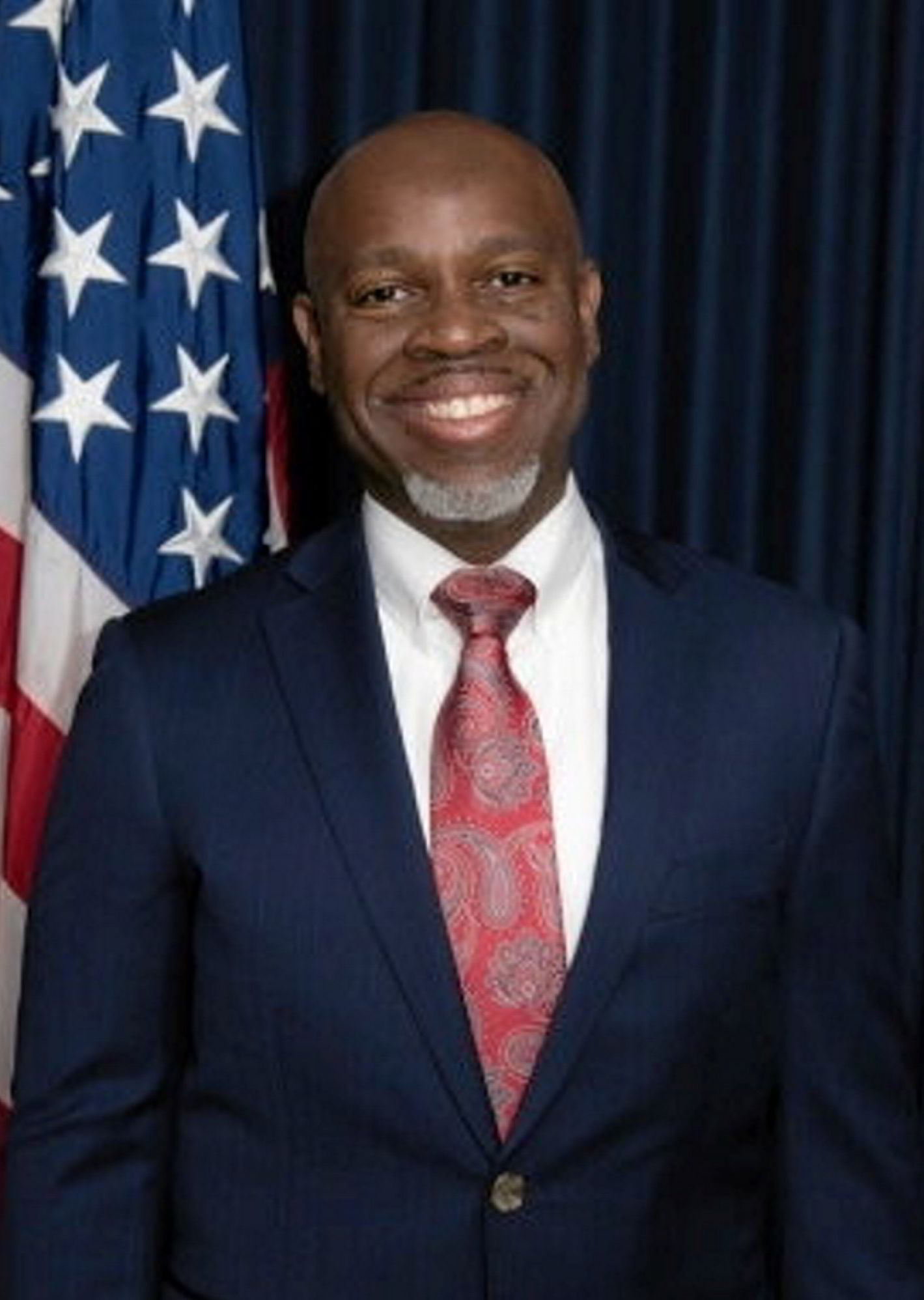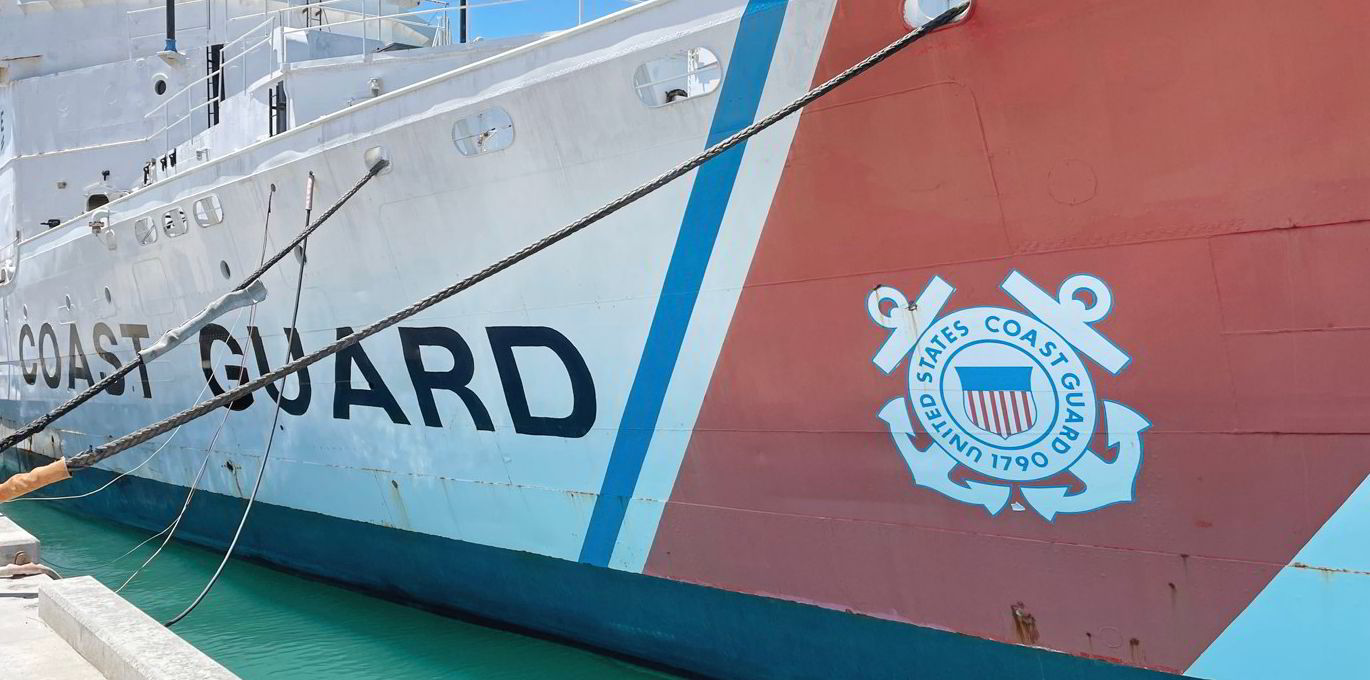When Jerry Fudge wanted endorsements to his merchant mariner credentials that would allow him to serve as a master on small oceangoing vessels, he paid Dorothy Smith to get it done.
A US Coast Guard employee at a testing centre near New Orleans, Smith falsely reported that the seafarer passed his exams for the endorsement, as well as for another to serve as a chief mate on offshore supply vessels of any size, according to a document signed by Fudge as part of his agreement to plead guilty to criminal charges.
Three years later, Fudge was back for more, agreeing to pay Smith to make a false report that he passed his test to serve as a master of vessels of unlimited size at sea.
Fudge is one of 36 mariners who have admitted to paying for false test scores arranged by Smith, who is scheduled to face sentencing in June after pleading guilty to charges of conspiracy to defraud the US.
Alongside Smith before a judge in the US federal court in New Orleans will be Beverly McCrary, the fellow testing centre employee who served as the chief intermediary between Smith and mariners.
They each face up to five years of imprisonment and a $250,000 fine for their role in fixing test scores that qualified seafarers for jobs that reached all the way up to the top roles on a ship, including credentials for master, chief mate and chief engineer.
The pair pleaded guilty in February after virtually all of the mariners charged in the scandal struck plea agreements, with many avoiding prison by serving probation and community service instead.
The women worked at a regional exam centre in Mandeville, Louisiana, that is known as REC New Orleans. The tests they admitted to fixing are not just tickets to career advancement for seafarers; they are there to ensure the mariners had the knowledge they needed to carry out their roles safely.
While the public prosecution of seafarers and Coast Guard employees has exposed dozens of mariners working on licenses obtained through false test scores, the scandal is seen as an isolated incident for a US credentials system that is otherwise touted as a standard-bearer.
“This scandal is problemsome for us. It’s problemsome for all of the maritime industry, but I think it’s a one-off,” said Roland Rexha, secretary treasurer of US union Marine Engineers’ Beneficial Association.

He told TradeWinds that he does not believe exam fixing is prevalent in the US mariner community. The union official lauded the Coast Guard for its investigation of the test-fixing scheme and described the penalties sought by prosecutors as appropriate.
“If you’re trying to skirt by the rules and the regulations that keep that US Coast Guard licence as the gold standard, then there should be a punishment with that,” Rexha said.
Smith: the fixer
In court documents, Smith has admitted to falsely reporting test scores for as many as 50 mariners for money, somewhat more than the number who have been charged, according to documents. Almost all of the endorsements were officer level.
The mariners held the endorsements, earned through fake exam scores, for years. Fudge, for example, held his first master credential and chief mate credential from late 2016 to June 2019, court documents show.

According to an account signed by Smith and prosecutors, it was some time before April 2012 when she came up with a “conspiracy to interfere with the [Coast Guard’s] lawful government functions through dishonest means” by agreeing to take money to falsely report that applicants had passed examinations required for endorsement. The document, known as a factual basis, was filed as part of her agreement to plead guilty.
In some cases, Smith would work directly with the mariners. When a mariner came into REC New Orleans to conduct tests or to carry out other business related to their applications for credentials, she would offer to provide passing scores for money.
In other cases, she used intermediaries who dealt with the mariners. The main person in that role was McCrary, both while she worked at REC New Orleans and after she left. Also accused of serving as a middleman is Eldridge Johnson, who is facing charges related to the scheme.
Johnson, however, is fighting the charges. In April, he pleaded not guilty to all counts against him, even after the US Justice Department slapped him with an additional bribery count for allegedly taking money from a mariner.
He is scheduled to go to trial in August. He faces 15 years in prison for the bribery charge, as well as five years for conspiracy to defraud the US government. Each charge carries a potential fine of $250,000.
According to the factual basis signed by Smith, McCrary’s and Johnson’s role was to recruit mariners, provide the information necessary to enter the false scores and collect the money, keeping a portion for themselves.
“Typically a mariner participating in the scheme would not appear for the examination,” the factual basis read.
But Smith would create records and data entries showing the seafarers showed up and tested, and then she would make up passing scores for each of the exam’s modules and enter them in the system. After she sent an email to the Coast Guard saying the mariner had passed the test, the agency would issue the endorsement.
McCrary: the chief intermediary
It was sometime before April 2012 that Smith first told McCrary, her co-worker at REC New Orleans, that she was entering false test scores for money, legal documents show.
McCrary joined in, becoming the chief intermediary between the test-score fixer and most of the mariners who procured the fake test scores.
The two agreed that McCrary would recruit mariners to participate in the scheme, gather the needed information from the seafarers, take their money and deliver the cash to Smith, minus her cut, according to court documents associated with the middlewoman’s guilty plea.
McCrary usually took the cash upfront, with one associate admitting in plea agreement documents that the going rate was $2,500.

But the factual basis signed by McCrary shows that she sometimes took non-monetary payments.
“From one mariner, McCrary accepted coolers of freshly caught shrimp in exchange for arranging false examination scores,” according to the document.
McCrary also instructed mariners on how to avoid getting caught. She told them not to call REC New Orleans to check on the status of their application. They should not work on vessels on days when the fake tests were scheduled. They were to use code words when talking about the scheme by phone.
In the factual basis, McCrary admitted that she would sometimes find new customers by striking up a conversation with seafarers that came into the testing centre and then solicit them to participate in the cash-for-credentials scheme.
The network
But eventually, the seafarers whom McCrary had helped to get false test scores to obtain credentials became a source of new business, allowing her to continue funnelling customers into the conspiracy until almost four years after her job at REC New Orleans ended in August 2015.
McCrary admitted in court records that she developed a network of middlemen and middlewomen of her own, including three mariners who brought in more seafarers after she helped them obtain credentials through rigged exam scores.

They included Micheal Wooten, who was sentenced in January to 54 months imprisonment, according to the US Justice Department. He is now serving time in a federal prison in Pensacola, Florida, according to prison records.
He admitted in court records that he was charging mariners $5,000 for the false test scores, keeping a portion for himself and delivering the rest to McCrary. He also procured fixed exam results for himself, for his third assistant engineer and designated duty engineer credentials.
Another intermediary, Alexis Bell, was sentenced in February to 42 months. An inmate director shows he entered a low-security prison in Sumterville, Florida, in May.
A third intermediary was Sharron Robinson, a maritime industry employee who pleaded guilty in March of last year but whose sentencing status is not immediately clear. She admitted in plea agreement documents that she also procured false exam scores to allow her to work as an able seaman.
She was scheduled to be sentenced in April, but the court record does not reflect the outcome of the hearing and a US attorney’s office spokesman did not immediately respond to a question about the case.
The trio alone brought 31 seafarers into the scheme, according to federal prosecutors.
In addition to the criminal proceedings, the Coast Guard took suspension and revocation actions against 95 mariners connected to the test-fixing investigation, including the 36 that were charged, chief warrant officer Kurt Fredrickson, a spokesman for the agency, said.
And the investigation continues, he added.
Following the discovery of the scheme, the Coast Guard established a Merchant Mariner Credentialing Fraud Task Force to identify mariners who obtained their licenses through fraudulent means.
“To prevent any recurrence of exam fraud at regional exam centers, a thorough review of the Coast Guard’s examination programme and processes was conducted, as well as, an independent audit of each,” he said.
Changes were implemented at each regional exam centre based on the reviews and audits, and the Coast Guard ended walk-in exams.
‘Small percentage’
In a February marine safety bulletin, rear admiral John Mauger highlighted how few mariners resort to fraud, but also how serious it is when they do.
“Credentialed mariners are entrusted with the safety and security of commercial vessels, and the vast majority are dedicated, safety-conscious individuals who work hard to earn and maintain their professional credentials and endorsements,” he wrote.
“However, the small percentage of mariners who willingly subvert the [Coast Guard’s] credentialing rules, pose a significant threat to the entire marine transportation system.”
Given the length of the prison sentences of lower-level intermediaries in the test-score fixing scheme, it is likely that McCrary and Smith will face significant prison time because of their central roles.
Given the length of the prison sentences of lower-level intermediaries in the test-score fixing scheme, it is likely that McCrary and Smith will face significant prison time because of their central roles in providing passing scores for money.
It is a different story for many of the seafarers who admitted to paying for rigged test scores to obtain credentials for which they were not qualified.
Fudge, even after obtaining two master’s licenses based on false scores, was sentenced to a year of supervised release and 100 hours of community service, in addition to paying a $100 court fee and no fine.
Dorothy Smith
A former employee of REC New Orleans who pleaded guilty to charges that she created false test scores for some 50 mariners in exchange for payment.
Beverly McCrary
A former employee of REC New Orleans who pleaded guilty to being the main intermediary between Smith and seafarers.
Eldridge Johnson
Another former REC New Orleans employee accused of being an intermediary for Smith, although he has denied the charge.
Alexis Bell, Sharron Robinson and Micheal Wooten
Maritime industry workers who pleaded guilty to serving as intermediaries between McCrary and other seafarers who secured false test scores in exchange, usually, for cash





